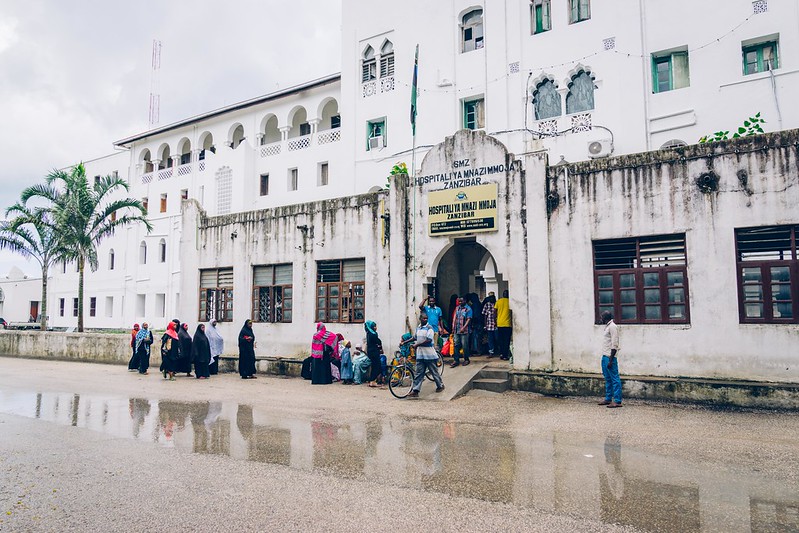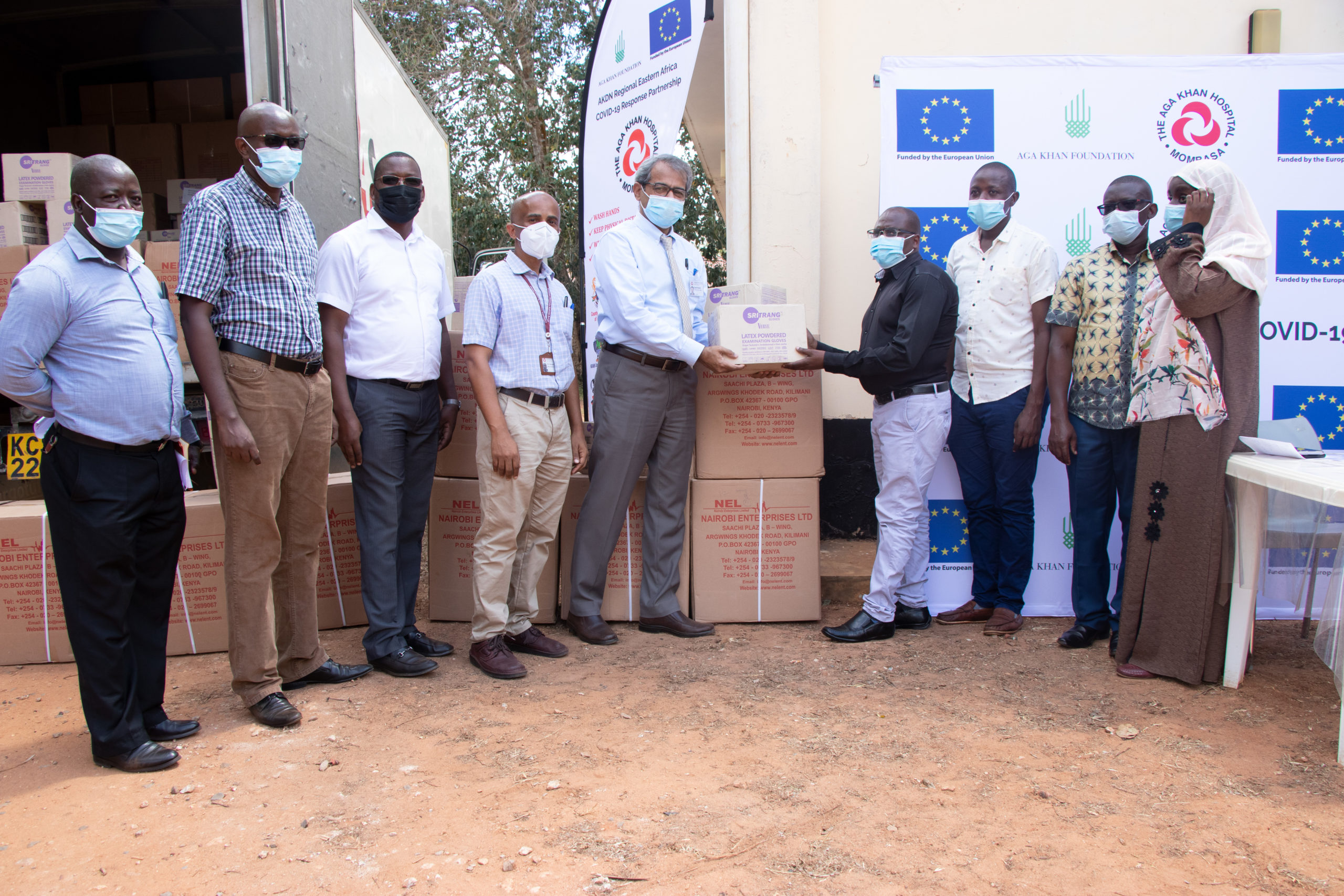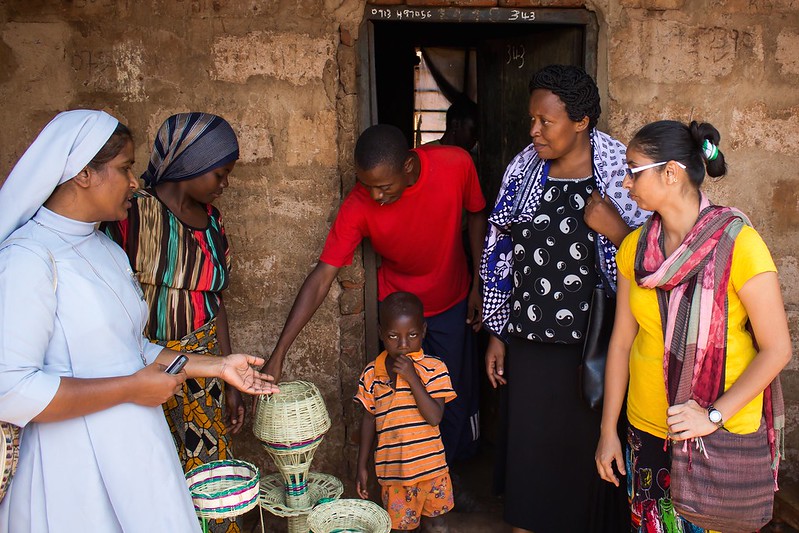Strengthening health systems in East Africa to fight COVID-19
One year into AKF’s €9m multi-sector partnership with the EU, we reflect on pillar two of the programme: health system strengthening

Since the start of 2021, the Aga Khan Foundation has been working in partnership with the European Union (EU) to take a multi-sector approach against the pandemic and its impacts in East Africa, with health system strengthening as a top priority. 12 months into this 30-month programme, considerable progress has been made and health systems in Kenya, Uganda, Tanzania and Mozambique are already finding new ways to cope with the pandemic. To date, the programme has equipped more than 42,000 people with information to protect themselves, their families and communities against COVID-19.
Two years on from the emergence of COVID-19, health systems around the world continue to battle with the spread of the virus. In low-income countries where health infrastructure is already strained, the pandemic has put further pressure on health facilities and the medical professionals who operate them. In East Africa, vaccine rollout has followed a slow path, and two of the countries where AKF works – Kenya and Uganda – are among the top three countries experiencing the highest rates of COVID-19 cases in the region.
With funding from the EU, AKF and its sister organisations in the Aga Khan Development Network (AKDN) have been working to respond to the health, social and economic challenges of COVID-19 in East Africa. The €9 million programme is divided into three pillars: community resilience, health system strengthening, and youth wellbeing and livelihoods. Taking a holistic approach, the programme’s activities include, among many others, disseminating COVID-19 prevention messages, reinforcing national health facilities’ resources, providing rapid response funds to civil society organisations to support vulnerable community members, supporting civil society organisations, and providing entrepreneurship and employment skills training and start-up funds to young people. To deliver these activities, AKF is working alongside Aga Khan Health Services (AKHS) and the Aga Khan University (AKU).
Central to AKF’s approach is to work in a way that’s relevant and responsive to the contexts we operate in. Working with existing health facilities is crucial to ensuring the impacts of this programme sustain long into the future, supporting communities across East Africa to navigate the COVID-19 crisis and build resilience to future shocks.

So far, the programme has reached more than 42,000 community members with accurate, up-to-date messaging about COVID-19, combatting the spread of misinformation. The programme also works to expand testing capacity and improve COVID-19 tracing systems – up to now, AKHS has conducted 9,500 COVID-19 tests within low-income communities in Kenya, which otherwise have not had access to testing.
In Tanzania, a defunct hospital ward has been renovated at the Amana Referral Hospital in Dar es Salaam (see before and after photos below). The High Dependency Unit now has a 40-bed capacity and is a key facility for treating severe cases of COVID-19 in the area.
Amana Referral Hospital is one of 22 health facilities that has received additional support from the AKF and EU partnership. Many of these facilities received PPE including face masks and gloves where previously there was a major shortage . In Mombasa and Kisumu in Kenya, two local hospitals have received new equipment for processing COVID-19 tests faster, as well as a set of biosafety cabinets to store medical supplies. Towards the end of last year, the Kenyatta National Hospital in Nairobi received a donation of five ventilators and 7,000 COVID-19 testing kits from the Aga Khan University Hospital, Nairobi, demonstrating a commitment towards supporting the national response to the pandemic. Dr. Evanson Kamuri, CEO at the Kenyatta Hospital, expressed his gratitude, “This gesture you have extended to our patients is a demonstration of your trust and confidence in our mandate”.

Another key component of this programme is developing the skills and knowledge of medical practitioners and healthcare workers across East Africa. In Tanzania, 27 health workers have received training on the effective management of COVID-19 and 15 lab technicians were trained in COVID-19 diagnosis. Both these trainings were delivered through digital platforms – digitisation of health services has been a running theme throughout the programme so far. Across various health facilities in the region, AKF has provided eHealth medical equipment in order to deliver further COVID-19 training, with an aim to train and support 650 health workers.

At this significant milestone in the programme, AKF and our partners are more committed than ever to delivering effective support to East Africa’s health system. At the end of the 30-month programme, we aim to have directly supported more than 140,000 people by improving their knowledge, resources and opportunities.
Watch this video created by the Aga Khan Hospital in Mombasa to learn more about the programme:
This is a project funded by the European Union and the Aga Khan Foundation and implemented by agencies of the Aga Khan Development Network. Views and opinions expressed are however those of the author(s) only and do not necessarily reflect those of the European Union. Neither the European Union nor the granting authority can be held responsible for them.


Support our work Your donations are helping us build a future where we all thrive together.